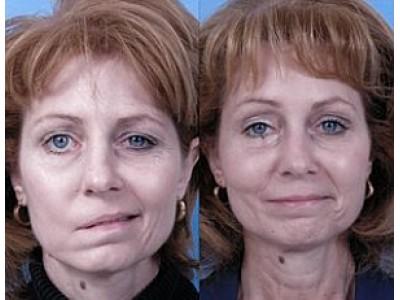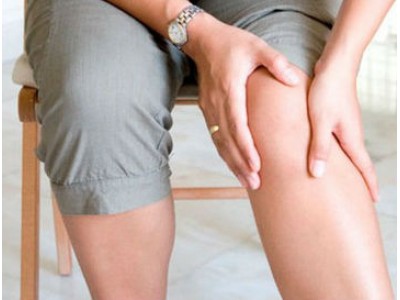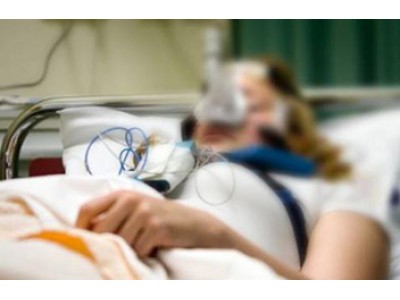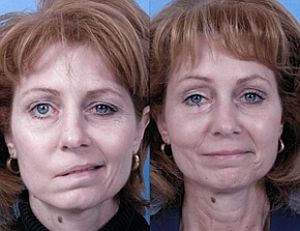 Pathologies leading to damage of brain tissue and, accordingly, nervous activity are some of the most common. They often cause death, but even more often human health is not fully restored.
Pathologies leading to damage of brain tissue and, accordingly, nervous activity are some of the most common. They often cause death, but even more often human health is not fully restored.
The concept of "minor stroke" is a particular case of stroke in general. It is used when lesions caused by stroke are insignificant. Sometimes a person suffers a minor stroke without noticing it and the presence of pathological foci is revealed much later, for example, during a planned examination. For example, in the diagnosis of MRI. But it is important to understand that even such an "inconspicuous" minor stroke is a formidable warning that your health and life are in danger! And, the sooner a correct diagnosis is made, the more likely it is to protect yourself from a possible stroke. We will describe the types of strokes, suggesting that they can be extensive or "minor".
Types of strokes and causes of minor stroke.
The defeat of nervous tissue is possible if:
- Blood will cease to flow to a specific area of the brain - accordingly, its nutrition and respiration will be disrupted, the cells will die;
- There will be rupture of blood vessels and hemorrhage;
- In the first case we are talking about ischemic stroke (or mini stroke). In the second situation, there is a hemorrhagic stroke.
The causes of both types are serious cardiovascular diseases. It can be:
- Increased or low blood pressure;
- Thrombosis;
- Atherosclerosis;
- Aneurysms;
- Arrhythmias;
- And so on;
It is clear that predisposing factors capable of leading to such violations are:
- Smoking;
- Alcoholism;
- Sedentary lifestyle;
- Unhealthy diet;
- Stress;
- Diabetes;
- Elderly age;
- And so on;
- Symptoms of a minor stroke.
Since we are talking about minor stroke, the lesions are point-like. A person can perceive what is happening as "another migraine" or "another hypertensive crisis."
The symptomatology depends primarily on which part of the brain has been damaged. For example, there may be asymmetry of the face, a feeling of weakness in the limbs (or, for example, in one hand), visual impairment affecting both eyes or only one, retinal hemorrhage, speech impairment. Often there are so-called "brain phenomena" - vomiting, dizziness, headaches, drowsiness, irritability, spasm of the muscles of the neck and occiput.
It is characteristic that the recovery occurs within a day. Thus, if the poor state of health "passes by itself" - the patient may not consult a doctor. And do not find out that his (her) health and life are in danger.
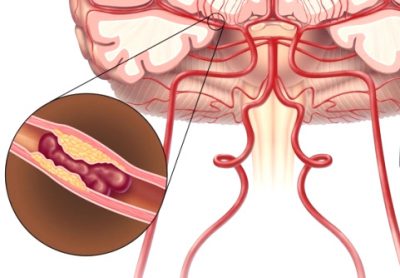 If the patient is taken to the clinic, he or she must have a CT scan or a magnetic resonance imaging of the brain. These studies give reliable information even about point lesions of the nervous tissue. If you suspect a person developing a stroke - you can try to test it with simple methods:
If the patient is taken to the clinic, he or she must have a CT scan or a magnetic resonance imaging of the brain. These studies give reliable information even about point lesions of the nervous tissue. If you suspect a person developing a stroke - you can try to test it with simple methods:
1. First, ask him (her) to say some sentence (simple) and evaluate the speech function - the speed of speech, the pronunciation of individual sounds and words;
2. Secondly, ask an easy question (for example, what is your name, what day of the week is it, etc.) - if a person thinks about the answer, answers uncertainly, incorrectly, then this is a terrible symptom;
3. Thirdly, ask the victim to smile - you may notice an asymmetric face;
4. Fourthly, if a person is able, you need to ask him to move synchronously, for example, to raise both hands simultaneously - any violation of synchronism can be evidence of brain damage;
In any case, with the slightest suspicion of a stroke, it is more important to deliver the victim to the hospital. The time and correctness of the assistance rendered here are of paramount importance. It is important that the patient gets to that medical institution, where there is a specialized neurological department, equipment, doctors specializing in the treatment of the consequences of disease.
Treatment of minor stroke. Before the arrival of the ambulance.
In the first minutes or hours, until medical help arrives, the patient should be provided with maximum comfort and peace. Unbind tight clothes, lay the victim so that the head and shoulders were raised. Do not make a patient drink anything because it does not help. Taking food and drinking in this state is dangerous because swallowing disorders are possible. If a person loses consciousness and begins to breathe intermittently (not rhythmically) - immediately perform artificial respiration and an indirect massage of the heart. It is the perseverance in maintaining the function of breathing and the work of the heart that often saves a patient life.
If the patient is nauseous, vomiting begins - you must immediately turn the head to the side so that he (she) does not choke. In general, the main task of the person who is next to the patient during a stroke is panic suppression and focused help.
In a hospital such patients, as a rule, get into resuscitation, where doctors restore pressure, regulate fluidity and coagulability of blood, support the respiratory function of a person. Then we are talking about the rehabilitation period. And here the timing is important - the greater the successes achieved in the first month after the stroke, the more complete recovery is possible.
During this period the patient take medicines that improve nutrition and breathing of nervous tissue. In parallel, the treatment of a disease that caused a minor stroke is performed. When the condition allows - the active rehabilitation phase begins, when the patient is engaged in therapeutic gymnastics. Depending on the lesions detected, an individual complex of exercises is developed: respiratory, speech, motor.
Life after a minor stroke suggests some features. The patient should follow the disease that led to the defeat of the brain tissue and try to avoid exacerbations, which will cause another minor - or extensive stroke. Of course, it is worthwhile to lead a healthy lifestyle, eat right, and avoid stress.
